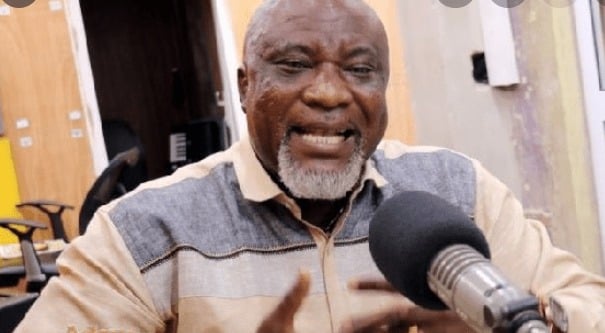Hopeson Adorye, a prominent member of the Movement for Change (M4C), also known as the Afrafranto Alliance, has voiced his perspective on the future of the New Patriotic Party (NPP) as it heads into the pivotal 2024 elections. Adorye, a former member of the ruling party, conveyed through an interview on Onua TV that he anticipates a significant defeat for the NPP in the upcoming elections. His insights stem from a blend of practical political lessons he has accrued over time, leading him to a confident assertion that signs of change are evident in the political landscape. He believes these indicators suggest that the NPP is not positioned favorably for the electoral battle ahead.
Moreover, Adorye outlined the potential ramifications for the NPP should they lose their parliamentary majority in 2024. He emphasized that the party would not merely face challenges but would be “miserable in opposition.” This bleak prediction illustrates his conviction that the party is unprepared to adapt to an opposition role, which could lead to a difficult period for its members and followers. The prospect of navigating the political arena without holding power could prove to be a harsh reality for the NPP, according to Adorye’s assessment of the current political mood.
A central theme in Adorye’s discourse is the notion of political transformation, for which he believes Alan Kyerematen, the presidential candidate for the Alliance for Revolutionary Change (ARC), represents a crucial figure. He posits that Kyerematen possesses the capabilities necessary to disrupt the longstanding political duopoly characterized by the NPP and the National Democratic Congress (NDC). Adorye’s endorsement of Kyerematen underscores a pivotal moment in Ghana’s political narrative, one that could lead to new governance dynamics and an opportunity for fresh ideas to permeate the political domain.
Kyerematen’s proposed Great Transformational Plan (GTP) is at the core of Adorye’s optimism for Ghana’s political future. According to Adorye, this initiative aims to create a framework for building a “prosperous and peaceful nation,” striving to level the playing field for all citizens, particularly marginalized groups such as the youth, women, and vulnerable populations. This vision embodies a commitment to inclusive growth and societal transformation, elements that Adorye argues are essential for any meaningful progress in Ghana’s socio-economic context.
As the 2024 elections draw nearer, Adorye’s comments serve as a rallying cry for those who seek change in governance and an empathetic approach to political leadership. The implications of Kyerematen and the ARC gaining traction signify a potential shift in how political power is perceived and exercised in Ghana. For many supporters, this change is not merely a political ambition but a necessary evolution in addressing the pressing issues facing the nation, thus highlighting the urgent need for policies that resonate with the country’s diverse populace.
In conclusion, Hopeson Adorye’s reflections on the political climate leading up to the 2024 elections encapsulate a broader call for a transformative approach in Ghanaian politics. His predictions about the NPP’s fate, coupled with a strong endorsement of Alan Kyerematen as a transformative leader, resonate with individuals seeking new alternatives to the entrenched political status quo. In advocating for the GTP and its focus on equitable opportunities for all citizens, particularly vulnerable groups, Adorye’s visions cast a hopeful outlook on the potential for change, marking a significant moment in the evolving political landscape of Ghana.














